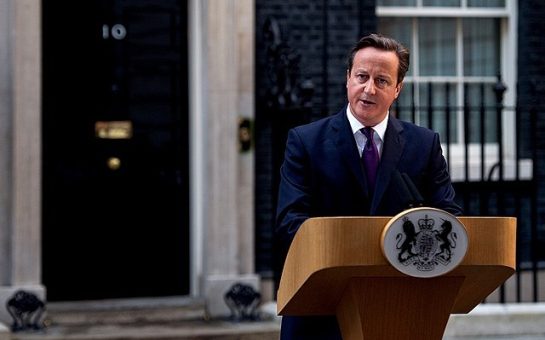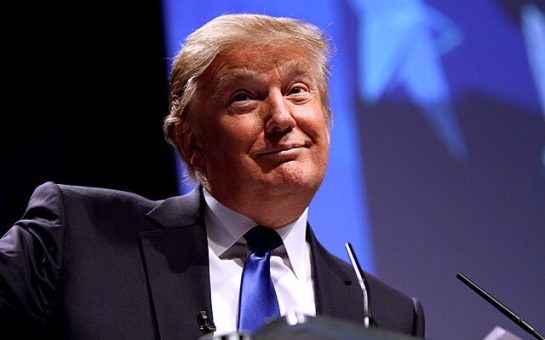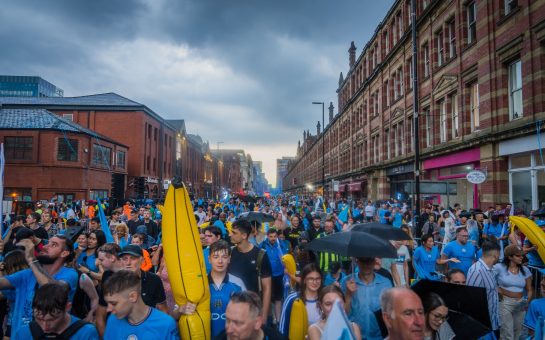China’s authoritarian regime is nothing new, but it’s not until now that it has become unignorable.
Since 2017 the repression of Uighur and other Turkic Muslims in Xinjiang has taken a dark turn with experts estimating at least one million have been detained in concentration camps.
A June 2020 report by Dr. Adrian Zenz, found that the birth rate in the Uighur regions of Kashgar and Hotan fell by 84% between 2015-2018.
The decline has been attributed to state enforced birth control and sterilisation that experts are calling “demographic genocide”.
Stories of abuse, torture, forced labour, political indoctrination and coercive birth control have continued to emerge from former detainees and family members of the incarcerated.
The signs of extremism in Xinjiang that can lead to detainment, include wearing a veil, owning a Koran, fasting during Ramadan, not drinking alcohol or not eating pork and a long beard.
The crackdown is part of an anti-terrorism campaign that came in response to riots in 2009 and intensified after a terrorist attack in 2014, when Uighur militants stabbed 31 Han Chinese to death.
Communist Party leader, Xi Jinping called for an “all- out struggle against terrorism, infiltration and separatism” and government officials were told in a series of secret speeches to deploy the “organs of dictatorship” and show “absolutely no mercy”.
MM spoke to David R. Stroup, a Lecturer of Chinese Politics at the University of Manchester, to determine why the campaign is only now gaining international coverage.
“For a long-time these things were happening but transparency inside of China on this issue was not especially high. It wasn’t until the middle of 2017 that we really began to notice that things were taking a very disturbing turn.”
The evidence is extensive. In November 2019 Communist Party documents were leaked to the International Consortium of Investigative Journalists (ICIJ).
The so-called ‘China Cables’ include government documents from 2017 that detail how the camps in Xinjiang should be built and run.
One order dictated that inmates must earn credits for “ideological transformation” and “compliance with discipline”. The top priority listed was “preventing escape”.
Another leaked document revealed 15,000 people in Xinjiang were sent to camps over the course of just one week in 2017.
China has said that the leaked documents were “fabricated” and initially denied the existence of the camps before changing tact when satellite photos surfaced, calling them “vocational training centres”.
Reuters alongside Earthrise Media, a non-profit group that analyses satellite imagery, tracked the construction of 39 camps.
A footprint of a built-up area, suspected to be a camp facility, almost tripled in size between April 2017 and August 2018, covering an area roughly the size of 140 football fields.
In terms of the international response Stroup said: “Due to political situations in other countries perhaps we weren’t hearing a lot of discussion about this, for instance countries in the Middle East or countries in the Islamic world, who were perhaps likely candidates for countries that might speak out, notably did not.
“The United States Congress has decided to enact sanctions to try and dissuade China from continuing these practises. There have been parliamentary investigations in Canada and there have been a couple of things that have come up here in the UK, so I think it’s just a slow trickle and we’ve now got enough information that is very difficult to ignore.”
Foreign Secretary, Dominic Raab told the BBC last month: “It is clear that there are gross, egregious human rights abuses going on. We are working with our international partners on this.”
The Secretary of State Mike Pompeo meanwhile called the treatment of Uighurs and other Turkic Muslims in Xinjiang: “the stain of the century”.
Today, the U.S. sanctioned the Xinjiang Production and Construction Corps and two of its officials for their connection to serious human rights abuses in Xinjiang. We call on the world to join us in condemning the CCP’s heinous abuse of the human rights of its own citizens.
— Secretary Pompeo (@SecPompeo) July 31, 2020
In May the Uighur Human Rights Policy Act was passed, allowing the US government to impose sanctions and visa bans against Chinese government officials responsible for the persecution of Muslims.
The Centre for Strategic and International Studies, an American think tank, has detailed in a report how prison labour has become an integral part of the government’s mission to “re-educate” minority Muslims, with Xinjiang producing more than 20% of the world’s cotton.
A report by The Australian Strategic Policy Institute has meanwhile found that Uighurs are forced to work in factories that supply at least 82 well-known global brands.
The Coalition to End Forced Labour in the Uyghur Region, made up of Labour Unions and NGOs, has called on a series of leading brands to cut ties with Xinjiang in order to end state-sponsored forced labour. Their call to action is endorsed by over 250 organisations.
Evidence connects brands including, Adidas, Lacoste, H&M, Abercrombie & Fitch and Ralph Lauren, to Xinjiang supply chains.
“Virtually the entire [global] apparels industry is tainted by forced Uighur and Turkic Muslim labour,” the coalition said in a statement.
Last month the Trump administration sanctioned the Chinese paramilitary and business organisation Xinjiang Production and Construction Corps, known as XPCC, and two officials connected to the group. XPCC runs mass “re-education” camps and exploits cheap labour through the so-called “gulag system”.
The EU has called on China to change its policies, and the UN has demanded access to camps, with the French foreign minister Jean-Yves Le Drian calling for independent inspectors to be allowed entry.
“The question is whether or not that’s something that China is going to do, and I would not expect that we would see China be willing to allow for independent inspectors.” Explained Stroup.
“China has been fairly consistent when they talk about this to the outside world. To the international community they say that it’s a domestic matter for China, it is our own security that we are concerned with and we are taking measures to combat extremism within our borders, it’s not the concern of the international community. The line is very similar to the one that was used for Hong Kong.
There have been some attempts by China to allow outsiders in, in terms of guiding foreign journalists around one of the facilities, but the overwhelming consensus of the international press was that they weren’t really being shown an accurate picture of what was going on.”
In 2019 the BBC was granted access to a camp in a bid by the Chinese government to prove they were not prisons.
The reporter John Sudworth recalled: “We were shown adults seated in rows at school desks in brightly lit classrooms chanting in unison while learning Chinese” while others “performed highly staged and choreographed music and dance routines for us”.
When he asked a man how many people he had seen “graduate” in the 8 months that he had been there, the reply was: “About that I have no idea”.
Recently released drone footage reveals a starkly different picture to the one drawn by the 2019 BBC report. In the video detained Uighurs appear to be bound, blindfolded and led to a train.
Liu Xiaoming, China’s ambassador to the UK, said he “did not know” what the drone footage was showing when questioned on The Andrew Marr Show in July.
Photographs broadcast on Newsnight back in 2018 meanwhile have a striking resemblance to the footage. Found by a Uighur expert and verified by Humans Rights Watch, the photos appear to show hundreds of Uighur men held in prison-like camps surrounded by barbed wire fencing.
In 2019 Julia Hahn, a correspondent for DW news, interviewed a woman now living in Istanbul who was trapped in a camp for over year. She told her that every 10 days the women received an injection: “we didn’t know what it was, but the younger women stopped having their periods,” she said.
This month a video of the Uighur model Merdan Ghappar, handcuffed to a bed in a detention centre used as a s holding facility ahead of the camps, was sent to the BBC by his family. Propaganda messages announced over loudspeaker can be heard in the background.
The video was accompanied by text messages from him that read: “I saw 50 to 60 people detained in a small room no bigger than 50 square metres, men on the right, women on the left.”
“Everyone was wearing a so-called ‘four-piece-suit’, a black head sack, handcuffs, leg shackles and an iron chain connecting the cuffs to the shackles.”
Ghappar’s family have not heard from since the messages stopped five months ago.
The BBC have asked the Chinese Foreign Minister and Xinjiang authorities for a response but are yet to receive one.
The campaign in Xinjiang is enforced by tracking residents through a network of checkpoints and surveillance technology. Citizens are also required to install a surveillance app on their mobile phones which is monitored by police.
These practices have led to the regime being dubbed a “hi-tech genocide”, with Dr. Zenz calling Xinjiang “perhaps the most heavily policed region on the planet”.
“There is an extensive set of research done on the kinds of surveillance technology that has been sold and tested in Xinjiang.” Stroup confirmed.
“It’s a pretty sophisticated network of technology that allows for face recognition, it allows the Communist Party to have eyes in a lot of places. Notably this is technology that has been created in cooperation with international corporations. Companies like Hikvision were developing facial recognition cameras in China that have been found to have been used in this surveillance.”
In 2019 the US blacklisted any companies associated with the regime, including surveillance technology manufactures, but according to Stroup it’s not just technology that watches over citizens.
“There are also a number of programmes for local and community monitoring. It is not uncommon for instance for Uighur families to regularly host Han supervisors [the Han Chinese are the ethnic group that make up most of China’s population].
“There have been reports of Han neighbours taking up residence in the home or Uighurs, or Uighurs having to host a Han guest so many times a week for dinner. It’s reported more than a million Han civil servants have been deployed to ethnic minorities’ homes to monitor their behaviour.”
He calls this form of surveillance not as high tech but “certainly just as effective and just as pervasive”.
According to a Radio Free Asia report in 2019, Han Chinese men, referred to as “relatives”, are assigned to monitor Uighur families, and regularly sleep in the same beds as the wives of men detained in camps.
Despite irrefutable evidence the Chinese government continues to deny it’s persecuting minority Muslims.
A spokesperson for China’s Foreign Ministry, Hua Chunying, hit back at US criticism claiming Uighurs in Xinjiang have more freedom than African Americans in the US, using George Floyd’s death as a point of reference.
<
Secretary #Pompeo claims moral superiority of the #US over China, saying the US secures more freedom for its citizens. Is that so? Like the emperor in his “new clothes” lost in a world by himself. Please give Floyd & other African Americans the freedom to breathe first.
— Hua Chunying (@SpokespersonCHN) July 17, 2020
Undeterred members of the Uighur diaspora have submitted evidence to the International Criminal Court last month with an aim to investigate Beijing for genocide and crimes against humanity.
Lawyers are relying on evidence from documents and witness testimonies to hold China’s Communist Party to account for its regime under international law.
A Campaign For Uyghurs, an organisation that advocates the human rights of Uighurs and other Turkic people in Xinjiang, have tweeted evidence including eyewitness accounts in support.
A campaign to close the camps run by the World Uyghur Congress launched in 2018 may finally get its wish granted.
On International Human Rights Day the World Uyghur Congress is calling on #China to #CloseTheCamps
We will be using the hashtag #CloseTheCamps beginning of today until all #Uyghurs are released from the internment camps in #EastTurkistan pic.twitter.com/mMikhb1SgP
— WorldUyghurCongress (@UyghurCongress) December 10, 2018
With the help of the international community these campaigns may finally see success and Uighurs and other Turkic Muslims in the Xinjiang region could win back their freedom.



